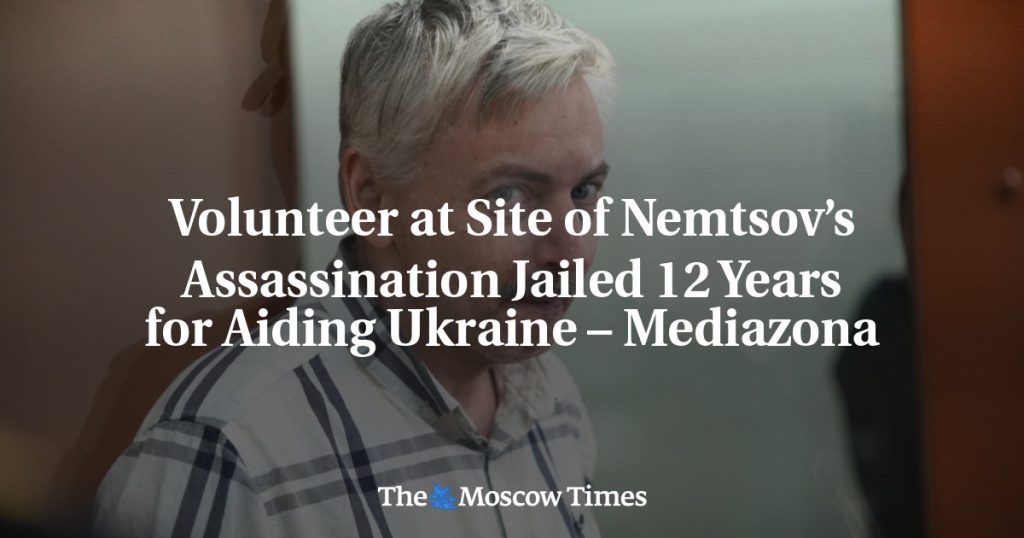Yevgeny Mishchenko, a volunteer at a memorial to Boris Nemtsov who was involved with the Ukrainian military, was sentenced to 12 years in prison by a Russian military court. Mishchenko was arrested in September 2023 on charges of participating in terrorist activities. The evidence against him was collected by an undercover police officer who recorded conversations with Mishchenko while disguised as another volunteer at the memorial site. Mishchenko was accused of planning to join the Freedom of Russia Legion, a paramilitary unit of Russian citizens fighting against Russian troops in Ukraine, and offering to film Russian military sites for them.
Mishchenko claims he was severely beaten while in police custody and denies his guilt, although he admits to the facts in his case. He believes that the charges against him are politically motivated, and that the evidence was obtained illegally. Despite his protests, the Moscow court found him guilty of participating in a terrorist organization and ordered him to serve 12 years in a maximum-security prison colony. Prosecutors had initially requested a 16-year sentence for Mishchenko.
It is reported that Mishchenko’s involvement with the Ukrainian military was in support of the Freedom of Russia Legion, a group fighting against Russian troops in Ukraine. He was accused of offering a plot of land to deploy missile launchers for the organization. Mishchenko’s arrest and subsequent conviction has raised concerns about freedom of expression and political activism in Russia. The use of undercover police officers to gather evidence against him has also sparked debate about the legality of such tactics.
While Mishchenko maintains his innocence, he is now facing a lengthy prison sentence for his alleged involvement with a terrorist organization. The case has highlighted the dangers faced by activists and volunteers in Russia who express dissenting views or support causes that are not in line with the government’s policies. Mishchenko’s conviction serves as a warning to others who may be considering similar actions, and has drawn attention to the limitations on freedom of speech and political activism in the country.
The sentencing of Mishchenko to 12 years in prison has been met with criticism from human rights groups and supporters of political freedom. Many believe that his conviction is unjust and that the charges against him were fabricated in order to silence dissent. The use of a military court to try Mishchenko has also raised concerns about the fairness and transparency of the legal system in Russia. Despite the challenges he faces, Mishchenko remains defiant and continues to maintain his innocence, vowing to appeal the court’s decision and fight for justice.


